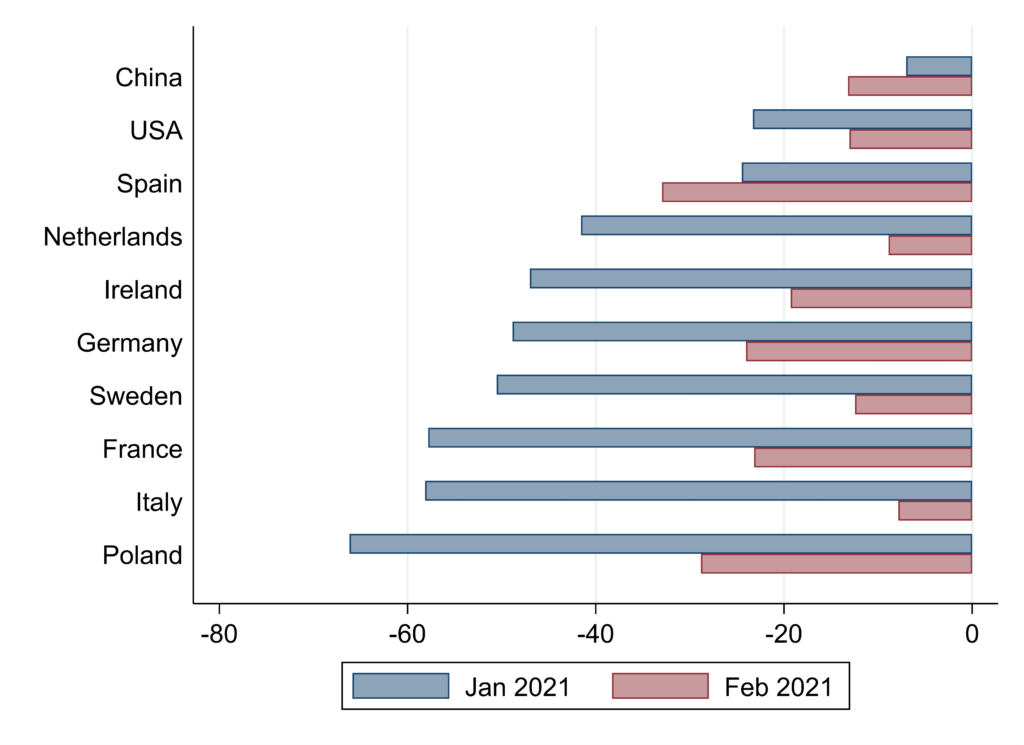UK Luxury Lobby: Brexit Impact On EU Exports

Table of Contents
Increased Trade Barriers and Customs Procedures
Brexit has introduced substantial new customs checks and paperwork, leading to increased costs and delays for luxury goods exporters. These new trade barriers represent a significant challenge for an industry renowned for its speed and efficiency. This includes:
-
Increased administrative burdens for smaller businesses: Smaller luxury brands often lack the resources to navigate the complex new import/export regulations, placing them at a competitive disadvantage. The sheer volume of paperwork required is a considerable obstacle.
-
Higher tariffs on certain luxury goods: While the UK and EU have a trade deal in place, certain luxury goods may face higher tariffs, directly impacting profitability and competitiveness. Understanding these tariff structures is crucial for successful export planning.
-
Complex customs declarations and compliance requirements: Ensuring compliance with all relevant regulations requires specialized knowledge and often necessitates the use of customs brokers, adding to the overall cost. Even minor errors can result in significant delays.
-
Increased risk of goods being held up at borders: Delays at border controls can damage perishable goods and lead to significant disruptions in delivery schedules, negatively impacting brand reputation and customer satisfaction.
Bullet Points:
- Delays in delivery impacting time-sensitive luxury markets (e.g., seasonal fashion collections).
- Higher transportation costs due to increased paperwork and handling fees.
- Potential for damaged goods due to longer transit times and increased handling.
Supply Chain Disruptions and Labor Shortages
The free movement of goods and labor between the UK and EU, once a cornerstone of efficient supply chains, has ended. This has created significant ripple effects for UK luxury brands:
-
Increased sourcing costs: The cost of sourcing raw materials and components from the EU has risen due to new tariffs and transportation costs. This directly impacts production costs and profit margins.
-
Reduced production capacity: Difficulties in sourcing specific materials and components have led to reduced production capacity for some luxury goods manufacturers. This can impact the ability to meet demand.
-
Difficulty in finding specialized craftsmen and artisans: The free movement of skilled labor is no longer guaranteed, making it harder for UK luxury brands to find and retain the specialized talent needed for high-quality production. This is particularly challenging for niche, handcrafted luxury items.
Bullet Points:
- Increased reliance on more expensive alternative suppliers outside the EU.
- Potential for delays in production due to labor shortages and supply chain bottlenecks.
- Pressure on profit margins, forcing brands to consider price increases or reduced production volume.
Impact on Consumer Demand and Brand Perception
Brexit has introduced uncertainty into the market, potentially affecting consumer confidence and purchasing decisions within the EU:
-
Uncertainty about product availability and delivery times: Delays and disruptions to the supply chain can create uncertainty among consumers, impacting their willingness to purchase UK luxury goods. Clear communication is crucial to mitigate this.
-
Potential for price increases due to added costs: The added costs associated with tariffs, customs procedures, and transportation have the potential to lead to price increases, making UK luxury goods less competitive compared to those produced within the EU.
-
Changes in consumer perceptions of UK brands: Brexit has created a complex political and economic landscape that may affect consumer perceptions of UK brands. This necessitates careful management of brand image and reputation within the EU market.
Bullet Points:
- Loss of market share to competitors in the EU luxury goods market.
- Need for enhanced marketing and communication strategies to maintain brand appeal and address consumer concerns.
- Increased importance of building strong and reliable relationships with EU distributors and retailers.
The Role of the UK Luxury Lobby in Addressing Challenges
The UK luxury industry lobby is playing a crucial role in addressing the complexities of Brexit's impact. Their efforts include:
-
Negotiating with the government for improved trade agreements: Lobbying groups work to influence government policy and seek to secure favorable trade agreements that minimize trade barriers.
-
Lobbying for streamlined customs procedures: These groups advocate for simpler and more efficient customs processes to reduce delays and costs for exporters.
-
Providing support and guidance to smaller businesses navigating new regulations: Many associations offer support and resources to help smaller luxury businesses understand and comply with the new regulations.
Conclusion
Brexit has presented significant and multifaceted challenges to the UK's luxury goods export sector. Increased trade barriers, supply chain disruptions, and potential shifts in consumer demand pose significant threats to the industry's competitiveness within the EU market. The UK luxury lobby plays a crucial role in mitigating these challenges, advocating for policy changes and supporting businesses in navigating this new landscape. Understanding the impact of Brexit on the UK luxury lobby and EU exports is vital for the long-term success of this vital sector of the British economy. To learn more about strategies for mitigating Brexit’s impact on your luxury export business, connect with industry associations and stay abreast of evolving trade regulations and the ongoing work of the UK luxury lobby to navigate these challenges.

Featured Posts
-
 Macron Et Le Cameroun Debat Sur Le Troisieme Mandat Et Le Referendum
May 20, 2025
Macron Et Le Cameroun Debat Sur Le Troisieme Mandat Et Le Referendum
May 20, 2025 -
 Nyt Mini Crossword Solutions For March 18 2025
May 20, 2025
Nyt Mini Crossword Solutions For March 18 2025
May 20, 2025 -
 Maitrisez L Art De L Ecriture Lecons D Agatha Christie Et L Ia
May 20, 2025
Maitrisez L Art De L Ecriture Lecons D Agatha Christie Et L Ia
May 20, 2025 -
 Storm Chance Overnight Severe Weather Potential Monday
May 20, 2025
Storm Chance Overnight Severe Weather Potential Monday
May 20, 2025 -
 Lorraine Kellys Awkward Exchange With David Walliams Cancelled Comment Sparks Reaction
May 20, 2025
Lorraine Kellys Awkward Exchange With David Walliams Cancelled Comment Sparks Reaction
May 20, 2025
